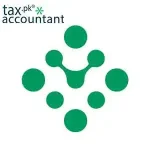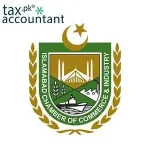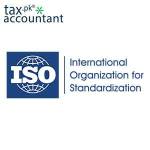It can be concerning to get a Section 147 “Intimation to Pay Advance Tax” notification from the tax authorities (such as the FBR in Pakistan). It’s an indication that you haven’t paid your taxes in full, even though the tax department thinks you should have done so. Advance tax is a “pay-as-you-earn” system that eliminates the need for a one-time lump sum payment at the end of the tax year. Its purpose is to lessen the burden on taxpayers and guarantee a consistent flow of income for the government.
Section 147 Notice: What Is It?
A Section 147 notice is a formal notification that you must pay taxes in advance. Certain taxpayers are required by law to do this, and when the tax department determines that you fit into one of these groups but does not have a record of your advance tax payments, a letter is usually sent.
A Section 147 notice could be sent to you if you are:
- A Company or Association of Persons (AOP): Advance tax payments are often due on a quarterly basis for both companies and AOPs.
- An Individual with High Income: You must pay advance tax if your most recent assessed or submitted income tax liability over a specific threshold (PKR 1 million in some jurisdictions, for example).
- A Professional or Self-Employed Individual: This group includes a large number of consultants, freelancers, and business owners, particularly if their earnings above the specified amount.
- A Business with a High Turnover: A high annual turnover may result in the need for advance tax even if your taxable income is low.
How to Answer a Notice Under Section 147
You cannot disregard this message. Penalties, fines, and even a tax audit may result from noncompliance. This is a concise, doable plan:
In order to verify the tax year or years and the amount of advance tax required, carefully read and comprehend the notice. Additionally, the notice will provide the dates on which each instalment is due.
- Determine Your Tax Obligation: Your tax liability from the prior year or a standard formula are frequently the basis for the tax department’s computation. Your revenue for this year, however, may differ. Your current year’s tax liability must be precisely estimated. For this computation, the law specifies a formula that differs for people, AOPs, and businesses. After accounting for any withholding tax that has already been paid, it entails dividing your most recent assessed tax bill into quarterly instalments.
- Make the advance tax payment:* Once your accurate tax burden has been established, you must pay the advance tax installments by the deadlines. Four equal quarterly installments are typically used to pay advance tax. Individuals and businesses may have different deadlines, but generally speaking, they fall in September, December, March, and June. You can pay the amount at a designated bank branch, online, or via an ATM after creating a PSID (Payment Slip ID) on the FBR’s site https://fbr.gov.pk/ (such as IRIS https://iris.fbr.gov.pk/login).
- Provide a Tax Estimate (If Applicable): You can provide the Commissioner with an estimate of the tax you owe if your expected tax burden for the current year is likely to be less than the sum listed in the notification. Before the second installment is due, this must be completed. This is an important step to show the tax authorities that you are acting in good faith and to prevent overpaying your taxes.
How You Can Benefit from Our Expert Services
Advance tax notices can be difficult and time-consuming to handle. Our group of tax experts is here to make things easier and make sure you’re in compliance.
- Accurate Estimation and Calculation: We will carefully determine your advance tax liability depending on your existing financial circumstances, making sure you don’t pay too much or too little.
- Review and Reaction to Notice: We will assist you in examining the notice and creating a polished, legally solid answer. We will assist you in presenting your case to the tax department with the appropriate paperwork if the notification is founded on false assumptions.
- Managing Deadlines and Payments: We will help you avoid late-payment fines and surcharges by assisting you with the creation of PSIDs and timely payments.
- Comprehensive Tax Planning: To help you better prepare for future tax needs and free up your time to concentrate on what you do best—managing your business—we provide proactive assistance to help you manage your tax obligations throughout the year.
A Section 147 notice shouldn’t be a cause of anxiety. Get professional help from us right now to make sure your financial affairs are in order and you are completely compliant.
For taxation services, do consider us https://taxaccountant.pk/








